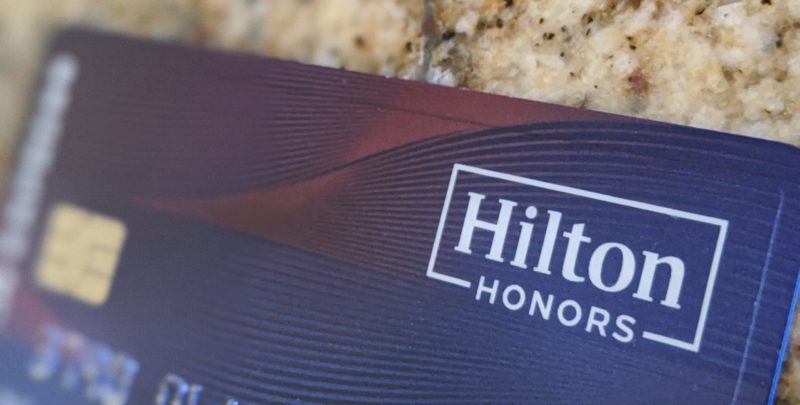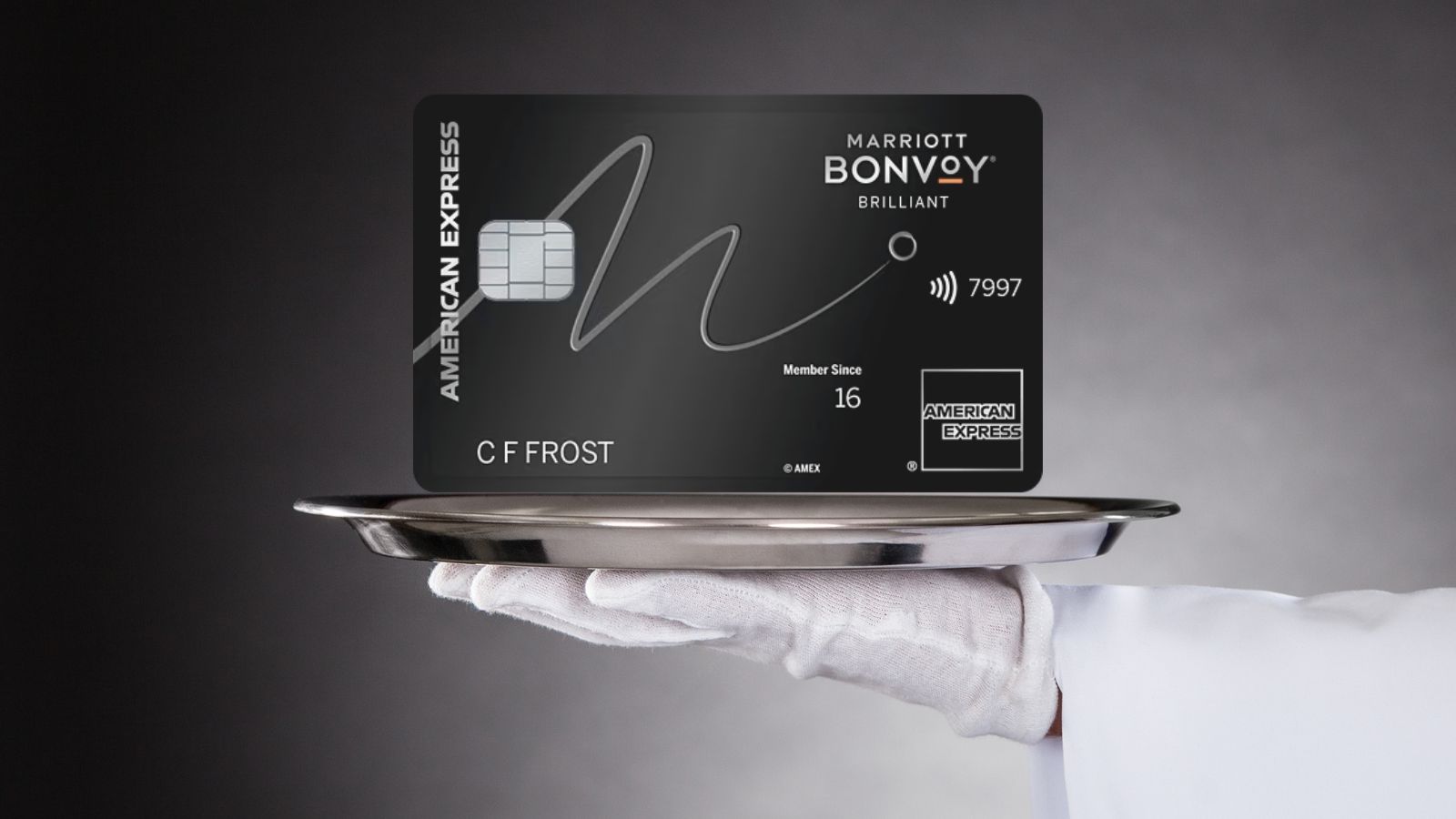Many hotel credit cards offer free night certificates as anniversary bonuses to incentivize you to keep a card, as “big spend bonuses” to entice you to spend more on the card, or even as part of a welcome offer to make it more attractive to apply for the card in the first place.
These certificates usually have a numerical point value, indicating the maximum amount the certificate can be redeemed for when used for a night at a hotel. That said, they also have expiration dates and varying degrees of flexibility when redeeming them. They aren’t as desirable as the equivalent amount of points.
But how valuable are they? In this post, we’ll estimate how much each major chain’s free night certificates are worth, using our recently updated Reasonable Redemption Values as a guide.

How we estimate free night certificate values
The basic idea is to value free night certificates at their maximum point value, then reduce that value by a “fudge factor” to account for the many ways free night certificates are less desirable than the equivalent number of points. For example, with a Marriott 35K free night certificate, we start with 35K points, then reduce that amount to reflect that free nights are harder to use and less flexible than points toward the maximum value.
Maximum point value of hotel free night certificates
These days, some free night certificates are capped, some are capped within a range, and some allow “topping-off” with additional points so they can be used at more expensive properties.
For example, IHG free nights that come with the old IHG Select card can be used at hotels that cost up to 40,000 points per night, with no ability to top them off, while the anniversary certificates for the IHG Premier and Premier Business can be topped off with an unlimited amount of points, making them much easier to max out.
Marriott offers some certs good for up to 35K points, some for up to 50K, and others that are good for up to 85K. All of them can be topped off with up to 15,000 points from your account.
Hyatt goes by category and offers free nights capped at either category 4 or category 7, regardless of whether the property is at off-peak, standard, or peak pricing. Hilton complicates things a bit because they don’t cap their free nights, nor do they publish a maximum standard award price for their hotels.
Here are the max point values that we now use for calculating the free night certificates’ first-year value:
- IHG: 40K points or 60K points
- Hyatt:
- Category 1-4: 15K (standard price for category 4 hotels)
- Category 1-4: 15K (standard price for category 4 hotels)
- Category 1-7: 30K (standard price for category 7 hotels)
- Category 1-7: 30K (standard price for category 7 hotels)
- Hilton: 150K
- Marriott: 35K, 40K, 50K, or 85K points
Note that we’re using 150k points for the Hilton certs, even though they can be used for any standard reward, which now tops out at over 200,000 points per night. The reason is that there are only a few dozen of those 200k+ properties; 100k-170k is much more common. So, we’ve decided to keep the “points maximum” used to determine that value at 150k.

Factors that affect the value of hotel free night certificates
There are several reasons why free night certificates are worth fewer points than the equivalent number of points. For example:
- Hard expiry: Most free night certificates expire after one year. Points, meanwhile, are usually valid for much longer and can be extended simply by earning or spending them.
- Inflexible: A 40K free night certificate can be used for one night at a 40,000-point hotel, but unlike 40K points, it cannot be used for two nights at a 20,000-point hotel. Similarly, you can’t stack multiple free night certificates to book a higher-priced room. For example, you can’t use two 40K certificates to book an 80K night.
- No 4th or 5th night free awards: Unlike points, free night certificates cannot be used towards 4th or 5th night free awards.
To account for all of the above, we developed “fudge factors” for each type of free night certificate. These numbers are less than 1, so they can be multiplied by the maximum value of a certificate to calculate the first-year value. Here are the fudge factors the FM team developed, along with a brief explanation of each:
- Hilton: 0.85
- These are the least restrictive certs since they are uncapped and can be used any day of the week.
- IHG “top-offable”: 0.85
- These have the same fudge factor as Hilton certs because you can add an unlimited number of points to book more expensive rooms, so they’re easy to maximize.
- Hyatt (12-month expiry): 0.8
- Unlike Marriott or IHG, Hyatt doesn’t allow adding points to book higher category hotels. On the other hand, Hyatt’s certs work just as well at hotels that are peak-priced as at those that are standard or off-peak. This is an adjustment that we’re applying to the Chase-issued certificates with a 12-month expiration date.
- Marriott: 0.8
- While Marriott allows you to add points to top off a free night certificate, it caps the amount at 15,000 points per night.
- Hyatt (6-month expiry): 0.7
- Unlike with Marriott or IHG, Hyatt doesn’t allow adding points to book higher category hotels. On the other hand, Hyatt’s certs work just as well at hotels that are peak-priced as at those that are standard or off-peak. The certificates Hyatt awards for Milestone Rewards are valid for only six months, so they have a larger fudge factor.
- IHG “fixed”: 0.7
- When IHG includes 40k or 60k certs in a welcome offer, they usually cannot be topped off with additional points. Because of this, it’s extremely hard to get the max value of the cert, as a property would need to be priced at exactly 40k or 60k. Accordingly, these certs have the most severe fudge factor.
Hotel free night certificate values
Based on the above, we have updated the values of free night certificates on our best offers page. As our RRVs change, the following certificate values will update periodically as well.
Here’s how we currently “value” hotel free night certificates:
- IHG:
- 40K points (fixed) x 0.70 fudge x 0.61 RRV = $170.80
- 40K points (can be topped-off) x 0.85 fudge x 0.61 RRV = $207.4
- 60K points (fixed) x 0.70 fudge x 0.61 RRV = $256.20
- Hyatt:
- Category 1-4 (6-month expiry): 15K points x 0.70 fudge x 1.8 RRV = $189
- Category 1-4 (12-month expiry): 15K points x 0.80 fudge x 1.8 RRV = $216
- Category 1-7 (6-month expiry): 30K points x 0.70 fudge x 1.8 RRV = $378
- Category 1-7 (12-month expiry): 30K points x 0.80 fudge x 1.8 RRV = $432
- Hilton: 150K points x 0.85 fudge x 0.41 RRV = $522.75
- Marriott:
- 35K points x 0.80 fudge x 0.76 RRV = $212.80
- 40K points x 0.80 fudge x 0.76 RRV = $243.20
- 50K points x 0.80 fudge x 0.76 RRV = $304
- 85K points x 0.80 fudge x 0.76 RRV = $516.80

Summary
It’s important to understand that you can always get more or less value from your free night certificates. The same is true when we estimate the reasonable redemption value for points. Our goal is to find reasonable target values at which it’s “reasonable” to expect that you will get this much value, or more, from your free night certificates.





How is an uncapped Hilton cert worth less than a capped 85k Marriott cert?
I get the logic you are using but this seems like a weird result of that logic. To put this another way: would you trade a Marriott cert you couldn’t use at any property charging 100+k (which covers a LOT of Marriott luxury properties)( for a Hilton cert you can use nearly anywhere, at comparable luxury properties?
You guys are missing the Best Western credit card! You get a free night every year and after $10,000 spend. Yeah, it’s not the sexiest hotel program but the free night is uncapped so you could spend it in one of their upscale hotels in the middle of Manhattan which certainly has some value!
I would add one more factor: unwaived resort fees. I love Hilton and didn’t realize how much better it is until I just had a Marriott stay w my five free nights and paid more than 200 in resort fees. Also had parking fees which I can’t remember paying w Hilton before. It added $75/night. If you figure you are getting that night free every year, then add $75 to the annual fee of your credit card.
Sometimes Marriott FNA are valuable at what you might normally consider mid-priced hotels. If you stay at something like a Westin, but it’s a seasonal location, you might hit $675-$850 rates, especially last minute. It’s not an ultra-luxury stay, but I’ve done it several times, and it’s a nice to burn these rather than cash.
In practice, Marriott SNAs are useless as are Ritz Card lounge upgrade certificates.
I think your Marriott valuation is too high. You should have also considered that Marriott (like Hilton) has dynamic pricing and it is way more difficult to redeem their 50k certificates at half-way decent properties. At least Hilton doesn’t have a hard cap on their certificates.
We’re all optimizers. I try to keep my calculations as simple as possible.
I get my 85k cert from the Ritz card. $450 annual fee. Easy $300 travel credit back. Every other benefit gravy
I’m prepaying $150 for an 85k cert. I’ve used 2 so far (with a points top up). Both at St Regis NYC. I get free breakfast with platinum status. Once I got an insane upgrade. Early check in 12 noon. Late check out 4 pm.
Would I have paid the close to $1000 for this night? No way. My usual stay would be a run of the mill courtyard/residence inn/Westin at $300 ish for a night in NYC if I’m lucky.
But to pay half of what I would normally pay… And get an absolutely incredible experience out of it. I don’t even bother with the RRV of the 85k cert.
You might need to reset your expectations regarding the NY St. Regis. Currently, guess how many nights over the next year there are that an 85k certificate (assuming 15k for top-off) can be used. TWO. And, they’re exactly 100k.
Currently, at the Ritz Carlton Central Park, there are 10 nights.
At a particular property in Europe, there are NONE. And, it’s not the only property.
Do I want to conform my travel schedule . . . my life . . . to when I can use an 85k certificate? It has become the tail wagging the dog.
Very true, it is rly obnoxious. Like truly. But just with all these games, the plays get devalued. Just need to keep up. Don’t forget that just 1-2 years ago the card had a 50k cert, now they changed it to 85k.. Sure it’s a pain, but you can still get pretty great value. the points fluctuate all the time.
Marriott could easily make the certs more useful by following the IHG Flex model — then the hotel can charge 102K if they want and we can decide whether it’s worth adding 17K etc. And if the hotel doesn’t want to allow redemptions a certain night, they could allows points but not certs (just like IHG does). But clearly, Marriott doesn’t want the certs to be *that* useful 🙂
Greg—a website comment. I wrote a long comment a few hours ago and it posted. I then saw I had a one letter typo and used edit to correct it. Comment immediately went to moderation after it had already posted, then was marked spam. Happened to me once before. So now I learned never to use the edit function. Guessing this is a bug and not a feature?
I’ve just unspammed it. The tool we use to help keep spam off the site sometimes seems a little touchy when people edit their comments shortly after posting it. That’s because spambots sometimes post something innocuous in order for the comment to bypass spam filters, then they edit the comment to include some kind of link.
It’s annoying that the tool can be overly sensitive at times; ideally it would only be particularly sensitive when the edit is substantial and/or includes a link. I don’t think we have granular control over that though, so unfortunately innocent comments sometimes subsequently get marked as spam.
Thanks Stephen. I will try not to edit in the future. Just for your information, the edit was changing “Time Square” to “Times Square”. That literally was it!
I’m old (need cheaters) and often work from my fon with very fat fingers- voice to text- and lot’s of misspellings.wrong words/etc that I try to proofread before sending, but inevitably find gibberish later.
How would I know if those edits go to spam?
If they go to spam, you won’t be able to see them anymore in the comments section.
once I subscribe (by making a comment), I get an email whenever anything new posts about what I wrote, but unless I get that, I would not come back to the post page and see that my comment was missing, and I would miss any new comments- so I set a reminder to check for new comments every week if I still have any interest in the subject/don’t feel like I have all the details yet/etc…
Am I missing something about how it works?
This occasional spam issue occurs when someone edits their original comment shortly after leaving their comment. If you’re not doing that, your comments shouldn’t get auto-flagged as spam.
Maybe it’s not a good spend but I got the virgin red recently and after the sign up bonus decided to finish off 15k free night. New York hotel runs about $700 a night in the summer.
Good job.
So many readers like to argue over subjective topics to show how “smarter” they are. Crazy world.
Great analysis but I view free night certificates a bit differently. They are equivalent to my “play money”. For example, I am in close enough proximity to New York City that it is not difficult to plan to stay a night there (and eat someplace where I can use my Resy credits and after October 26, Sapphire Reserve Exclusive Tables credits).
If I were paying cash, I’d look for someplace decent but moderately priced.
If I were paying using points, I’d look at how many points I had left and whether a more expensive place would be worth that much in points.
However, on free night certificates, I am looking to find the absolutely most expensive place I could try that I would never pay for, either with cash or points. Last night we returned from the Ritz Carlton NoMad–$1474 per night. A few months ago, the Ritz Carlton Central Park–$1925 per night. Upcoming–Essex House ($1300-$1500 per night). When it was still a cat 7, the Park Hyatt (about $1500 per night). Also stayed at the Andaz 5th Avenue on a FNC (roughly $1,000 per night). Before it reflagged, the Conrad Midtown (about $900 per night). During the week before Christmas when NYC is a madhouse, the Marriott Marquis Times Square ($950 per night). This is why I love this hobby–it lets you punch way above your weight class. With everything heading in the direction of dynamic pricing and spartan saver level availability, this is one way to get significantly oversized value.
One gotcha that got me recently is Marriott certs do not work for suites
They also don’t work for what look like normal rooms but happen to be marked as ‘redemption + upgrade’ (or something like that), even though the room type (e.g. King Classic) may not seem anything ‘premium’… Hilton’s monthly calendar at least shows ‘standard’ vs ‘premium,’ so one knows when a cert would work.
Tim:
Your making this a lot more complicated than reality! Keep it simple. When using a free hotel night certificate the first thing to do is to check out what the cost of a nights property would be using cash. (Assuming various AARP, AAA, Best rate discounts). If its worth it, then use the free night certificate. Also take into consideration that free night certificates do not charge room tax and most other fees. In nearly all cases I have obtained considerable more value for my free night certificate than what’s posted in your article.
The same rules can be applied for using your loyalty points to redeem a free night. Often hotel chains have “sweet spots” when you can obtain more value that what sites such as The Points Guy claim.
Your article fails to mention Wyndham and Wyndham rewards. Granted they have many budget or undesirable properties, but you can obtain great value. Especially with promotions.
Case in point: A two night stay during a current promotion earns 15,000 Wyndham points for a two night stay using the Wyndham CC as payment. I took advantage of this offer staying in a low priced hotel for $75 a night. Total cost $170. I used those 15,000 earned points to book a free one night stay at a more desirable hotel which would have cost over $300 a night had I used cash.
I learned about Wyndham attending an FTU seminar on Hotel Loyalty Programs. To my surprise the participants (most Hotel Loyalty Program experts) all ranked Hyatt number 1 and Wyndham number 2.
Thanks for the comment, Steve. The reason why Wyndham isn’t covered is that this is a post that specifically deals with free night certificates, not points. We have an entire post that covers Wyndham points, which you can read here. If you want to look at our values for all hotel and airline points, you can find them here (we call them Reasonable Redemption Values).
I don’t quite understand what you mean in your first paragraph. You say that you should check the cash price to see if it’s a good deal. But what are you using to decide whether or not that cash price is a good deal and worth using your free night certificate for? Are you comparing it to something?
Effectively, like we say in the post, we’re trying to estimate an average “cash value” for each of these free night certificates. Many people will get more than that, many get less. However, we’re trying to arrive at a conservative “average,” to make it helpful for folks thinking about paying the annual fee or spending on a card in order to get one.
We also use them for our estimates of a credit card’s first-year value when certificates are part of the welcome offer.
As Mike and others mention in last year’s comments, versatility is an important factor not captured. E.g., the Hilton FNA and IHG Flex FNA are extremely flexible, where with category/points creep, both Hyatt cat-4 and Marriott certs are much less flexible. So it seems strange to have Marriott 85K higher value than Hilton. If you’re lucky to find you favorite Marriott under 101K, you’re still paying $100+ in copay effectively (15K+ points). Hyatt cat-4 became less valuable as even mid-tier hotels moved to cat-5. And Marriott 35K (+15K ~ $100 copay) is almost completely useless in major cities for travel or staycation; where the ‘lower valued’ IHG 40K fixed I have been able to use at couple of InterContinentals for staycations (and having that cert means that you have the Select card — the 10% points discount is the real benefit, the 40K fixed is a bonus :-)). So depending on usage patterns, everyone should adjust their fudge factors, or ask ‘how much cash would I pre-pay to get that certificate’… (similar to Greg’s ‘should I keep this card’ calculations).
I completely agree. The Marriott certs have become extremely difficult to use, especially if you don’t have many points to go with them.
A particular Fairfield Inn was reliably at 35k. Now, it is infrequently at 50k or below, is regularly at 62k, and is occasionally at 75k. At a point, an 85k FNC plus a 15k top-off will not cover it. Something needs to change.